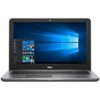1-4 of 4 Answers
..I am no computer guru, but as I understand this crazy business, a true laptop has a hard drive in it and (often...? always...?) has a disc drive in it. The Chromebook sends everything to the Cloud as I understand it...there is no disc drive in it although there are various ports, etc. on it.....Hey; I have had mine for over 3 years and it serves me outstandingly every single day of the week...There really isn't anything i cannot accomplish with mine....
Sorry, there was a problem. Please try again later.The difference is very different, and it's due to the hard drive type, the operating system. On a Chromebook, the hard drive is made by Google, and such a laptop will have a very small amount of storage available, and won't load many programs. The software on it will be limited, made mostly by Google, and you won't be able to install, nor download, many programs, nor store much data, like pictures and music, forget about the last two. You could buy an external hard drive, & get a connecting cord for storing pictures and music on that, that's one way to go. On the other hand, on a normal SATA drive, on a "regular" laptop, as it is the most common hard drive, you can get plenty of software on it, open a bunch of Windows or Tabs to work on simultaneously, download lots of photos & music, etc. Most SATA drives are now 500GB to 1TB, while a flash drive or Chromebook is 8-32GB, and a SSD drive is usually 125-500GB. A SSD drive has much more capacity than a Chromebook, or a flash drive, but a little less than a SATA drive. SSD computers tend to run & boot up faster than SATA's, but if you know how, you can get your SATA computer to run faster, by cleaning up the drive a bit. It isn't hard to do, you can read up on it online, before doing it yourself, or you can hire an expert to clean up your drive. This computer has a flash drive, and is not a Chromebook. A flash drive is somewhat like the Chromebook, but a little bit of a bigger capacity than the Chromebooks. So, if all you will do is check email, write in Word files, and surf online with only a couple windows or tabs, you'll be fine with a Chromebook or flash drive. It should be durable enough to take around to coffeehouses, the study areas at a University or school, etc. Watch out for what the battery life in these computers is, and whether a battery is replaceable when it dies, important to consider in buying any laptop of any kind, in my opinion. If you use many open Windows/Tabs, opt for a higher capacity, a SATA or a higher GB SSD, for your hard drive. Otherwise, you'll likely get very frustrated that your computer operates very slowly, freezes & crashes a lot, and won't load or download many web pages. If you do a lot of research for your job or school studies, I recommend getting a SATA or SSD drive, as this flash drive computer here, or a Chromebook, will be far too limiting and frustrating. But, if you don't do much research, and only use a bit of social media, or do some kind of writing & notes on Word, and a smaller bit of net surfing, then you could be very happy with this well made HP Stream, or a Chromebook laptop.
Sorry, there was a problem. Please try again later.The difference is that the chrome book is very restricted but works faster and that windows is less restricted but, is just a bit slower unless you get a good running run I would personally prefer a desktop, but, they are more expensive than desktops. That is another difference between the two, the price. Chromebooks are way cheaper than regular PC'S. I word personally prefer PC'S over Chromebooks but if you need something immediately that you aren't planning on doing something super heavy a Chromebook will definitely be better for you, I have both and right now (A Lenovo Chromebook, and an HP Stream), The Chromebook is definitely better but the hp was not meant for anything heavy either. If you want a laptop with full potential, get windows and spend at least 500 on it.
I would recommend:
Sorry, there was a problem. Please try again later.The have different operating systems, Google OS vs. Windows OS. Not all programs support Google OS, do your research. For example, I cannot use a chrome book for a specific browser required by my university.
Sorry, there was a problem. Please try again later.

